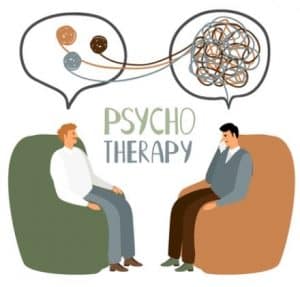Share This Article
Pupaphobia: The Fear of Puppets Is Not a Child’s Game
Have you ever been gripped by the fear of a puppet coming to life? Does the sight of puppets send shivers down your spine? If your answer to these questions is a yes, then you might be suffering from pupaphobia.
Pupaphobia is defined as the irrational fear of puppets. Pupaphobia is similar to pediophobia, which is the fear of dolls. Pupaphobia is a “scary” type phobia, as the sight or even the thought of puppets can send some into a state of anxiety or panic. Untreated, pupaphobia can lead to the development of generalized anxiety disorder. However, like any other phobia, pupaphobia is treatable.
The beginning of any recovery journey is first acknowledging that you have a problem. In this case, it may be a phobia. Next, you can learn all about your fear, how it developed, and how it can be treated. Let’s start here.

All You Need to Know about Pupaphobia
The word “pupaphobia” is derived from the Latin word pupa meaning “doll,” and the Greek word phobos meaning “fear.” Pupaphobia has been categorized as a form of anxiety disorder in the DSM-V. It’s a type of automatonophobia, which is the fear of human-like figures.
Historically, puppets were used to entertain people before television was invented. They were also bought as toys for children and occasionally used to enact a skit or play. Nevertheless, some films and TV shows have depicted puppets in a villainous manner.
How many times have you come across a movie where a puppet suddenly comes to life? Sounds scary right? The theme of puppets and figurines coming to life has become a common theme in several horror movies and shows, further instilling fear in those who may suffer from pupaphobia. Individuals with pupaphobia may believe that puppets are real and pose a danger to them. Not only will they grow anxious or terrified at the sight of puppets, but they may also suffer panic attacks.
What Happens When You Have Pupaphobia?
Although pupaphobia typically develops during childhood and fades as a person grows into adulthood, some grown-ups still carry the fear with them. Sometimes, children suffering from pupaphobia might even start to cry or scream when they see a puppet. As a result, such children and even adults will make deliberate efforts to avoid thinking or looking at puppets.
Those with pupaphobia may stop going to toy shops or even their own room if they have puppets at home. They may also refuse to take part in activities such as theater or stage shows involving the use of puppets. Such practices may act as defense mechanisms against pupaphobia, but they only further enable the fear, as they continue to instill the belief that puppets are dangerous to them.
Why Do I Have a Fear of Puppets?
Pupaphobia causes can be generic and often vague. Nevertheless, genetic and environmental factors play a significant role in developing any phobia. For instance, a family history of mental disorders and anxieties makes an individual more likely to develop phobias such as pupaphobia.
Another possible reason why someone might have pupaphobia includes watching films and TV shows that depict puppets as harmful creatures who pose a danger to humans. As a consequence, some individuals may start believing that puppets are terrifying. They may have recurrent nightmares about puppets, which further aggravates their pupaphobia.
Do I Have Pupaphobia?
Are you wondering if you suffer from pupaphobia? Let’s take a look at some mental, emotional, and physical symptoms of this phobia:
Mental/Emotional Symptoms
- Heightened anxiety
- Panic attacks
- Avoidance behaviors
- Fear that something bad will happen
- Insomnia
Physical Symptoms
- Increased heart rate
- Shortness of breath
- Muscle tension
- Migraine
- Nausea
- Confusion and dizziness
- Excessive sweating
- Tremors
- Hot or cold flashes
- Butterflies in the stomach
- Dryness of the mouth
- Crying or screaming
Pupaphobia Treatment
Just like any other phobia, pupaphobia is treatable. You can either seek professional help or equip yourself with a range of self-help techniques.
What Can I Do to Help Myself with Pupaphobia?
In case you might be asking Can I overcome pupaphobia myself?, the answer is a resounding Yes! If you don’t want to attend therapy and feel you can treat pupaphobia on your own, there’s a wide range of self-help techniques that can help you do so.
Targeted Exercise
According to the American Psychological Association, exercise is one of the best ways to overcome pupaphobia. Exercises can either be in the form of a cardiovascular routine, aerobics, or yoga. High-intensity workouts such as cardio, weight-resistance training, and aerobic modalities like swimming, jogging, biking, and brisk walking, help to reduce stress. Exercise distracts the mind from negative and intrusive thoughts and releases endorphins, which are the brain’s feel-good chemicals.
Yoga
If high-intensity workouts are not something you enjoy, try practicing yoga. There are various yoga postures those suffering from pupaphobia can learn. Yoga poses can help to relieve some of the anxiety and panic associated with pupaphobia. Yoga helps direct the mind towards positive and productive thoughts.
Meditation
In addition to yoga, you can also practice mindfulness meditation. This helps divert your mind from negative thoughts by focusing on your breathing and the movement of the muscles in your chest and abdomen.

Professional Help
If you feel professional guidance would be useful in overcoming pupaphobia, then seeking therapy is the best option. Typically, therapists use techniques such as cognitive behavioral therapy (CBT), exposure therapy, and mindfulness-based stress reduction (MBSR) to treat patients with phobias.
Cognitive Behavioral Therapy (CBT)
Cognitive behavioral therapy is one of the most common techniques used in the treatment of mental disorders. In CBT, your therapist helps you trace the source of your phobia, analyzes its causes, and explains why you may have developed the phobia. Your therapist will help guide you toward replacing your irrational thoughts with more rational ones. Together, you’ll also explore techniques aimed at helping you cope with your fears.
Exposure Therapy
Under exposure therapy, you are gradually and repeatedly exposed to your fears in a safe space. The aim of exposure therapy is to desensitize you to your phobia and reduce anxiety. For pupaphobia, you may be shown photos and/or videos of puppets or imagine situations such as watching a puppet show. At the same time, you’ll learn coping exercises. With exposure therapy, you’ll come to realize that puppets are in no way harmful, which will help you overcome pupaphobia.
Mindfulness-Based Stress Reduction (MBSR)
Mindfulness-based stress reduction is a form of meditation therapy that is usually spread over an eight-week period. It’s generally used for managing stress and anxiety. Usually, MBSR includes group sessions where participants are taught mindfulness meditation and yoga. Group discussions and lectures are also conducted to talk about mental health. You’ll also learn how to overcome phobias and various other disorders.
How to Avoid Pupaphobia Triggers Altogether
If you believe pupaphobia is interfering with your daily activities, then it’s wise to avoid the triggers of your fear. Don’t read about puppets or watch movies or TV shows that depict puppets in a negative light. You might also avoid going to toy shops and stage shows, especially where puppets might be expected.
Conclusion
It’s true that the fear of puppets is an irrational fear. Those suffering from it hesitate to discuss it with others, fearing ridicule. However, with the right treatment, you can overcome pupaphobia, helping you lead a normal and happy life.
SOURCES:
https://www.tranceformpsychology.com/mental-health-problems/phobias/pupaphobia.html
https://optimistminds.com/pupaphobia/



